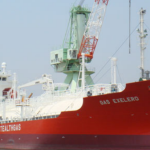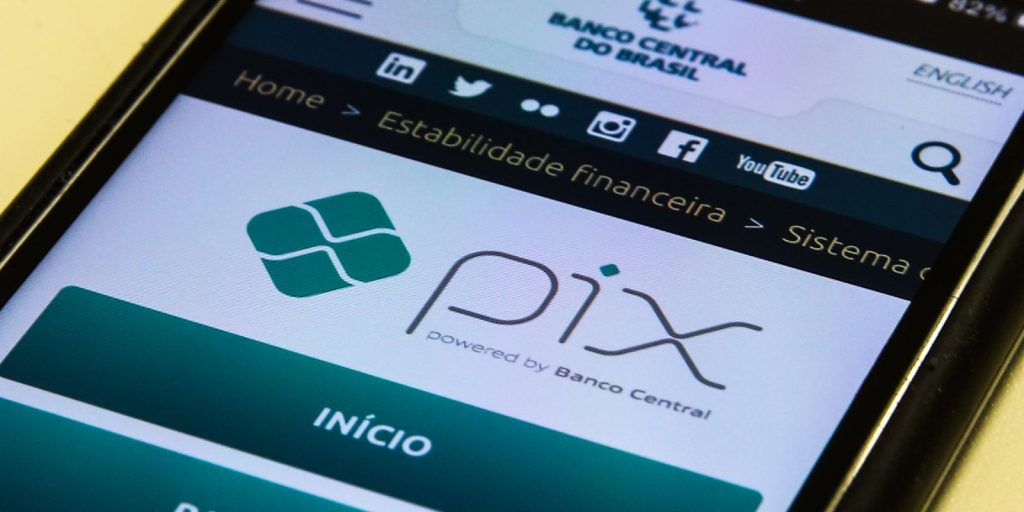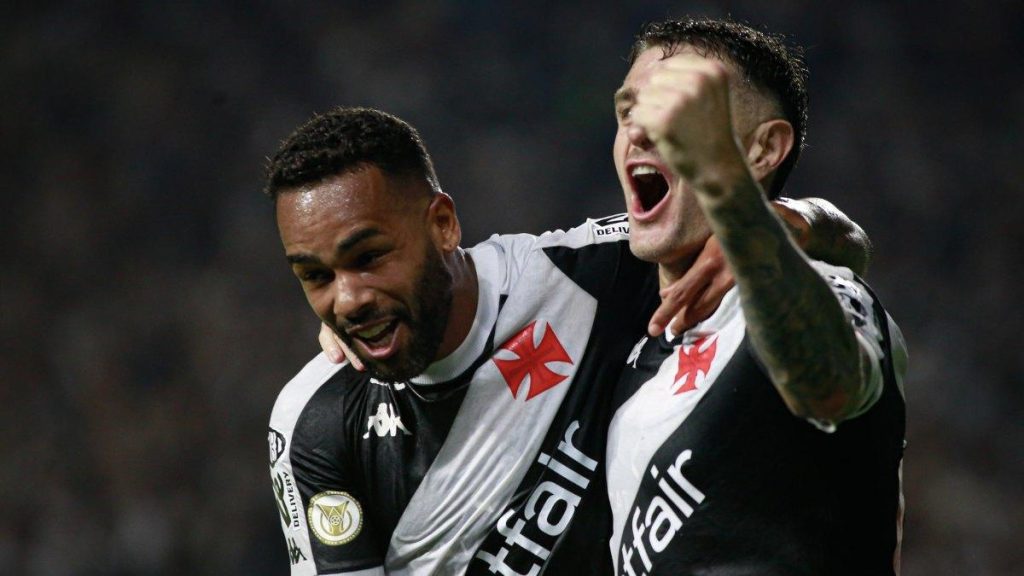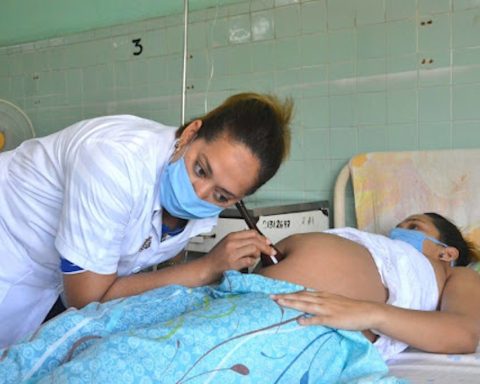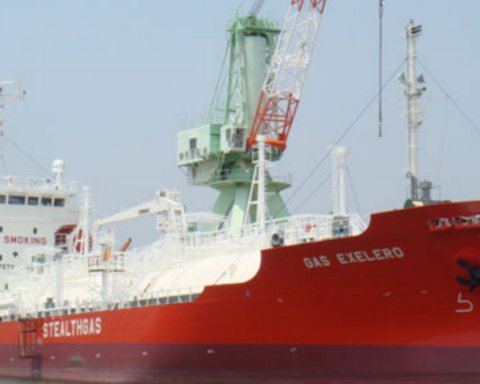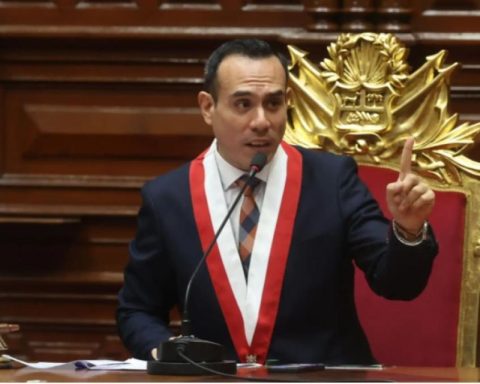December 4, 2024, 2:21 PM
December 4, 2024, 2:21 PM
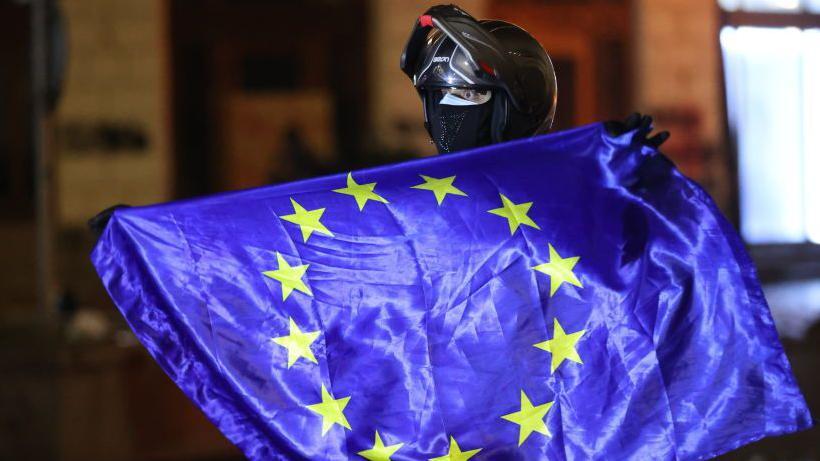
Night after night, Georgians fill the wide central avenue that runs past Parliament, in such numbers that there is barely room to move, neither on the street nor on the sidewalk on either side.
They arrive on Rustaveli Avenue wrapped in flags, the blue and gold of the European Union and the red and white of the St. George’s Cross, and accuse their increasingly authoritarian government of abandoning their European future to return to the sphere of its Russian neighbor.
The ruling Georgian Dream party fervently denies any ties to the Kremlin, but His actions in recent days have raised big questions about this country’s future with the West.
The party has not only experienced a bitter confrontation with the EU, but has also just seen the United States suspend the hard-won strategic partnership with Georgia.
In a country of just 3.7 million people, these are dangerous and momentous times. A supporter of the Georgian Dream said that His country was on the brink of the abyss.
During the night, the whistles and sound of vuvuzelas are occasionally interrupted by the crackling of protesters’ fireworks aimed at the imposing Parliament building and riot police standing guard with water cannons and tear gas.
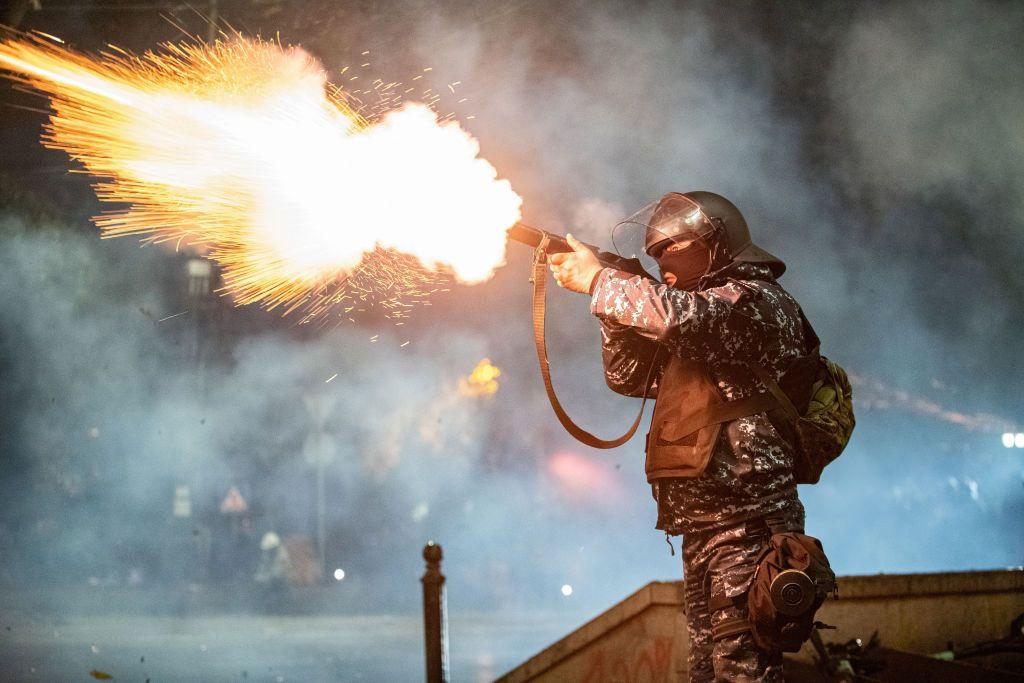
The demonstrations have continued every night since Thursday, November 28. In the first four days, the police waited until dawn before entering to retake the street by force, but on Monday night, December 2, they advanced much earlier and pushed the protesters to other places.
The police report that they have recorded more than 110 injuries among their own troops.
Meanwhile, more than 300 people have been arrested since the mass protests broke out. And an increasing number of stories denouncing violent attacks by the policedetained protesters report suffering beatings and serious injuries to the face and head, according to lawyers, and dozens of television reporters have been attacked.
“The level of people they have persecuted and the beatings they have received, to the point of having to be treated in hospitals, It’s something that has never been seen here before.” says Lasha Dzebisashvili, professor of Politics at the University of Georgia.
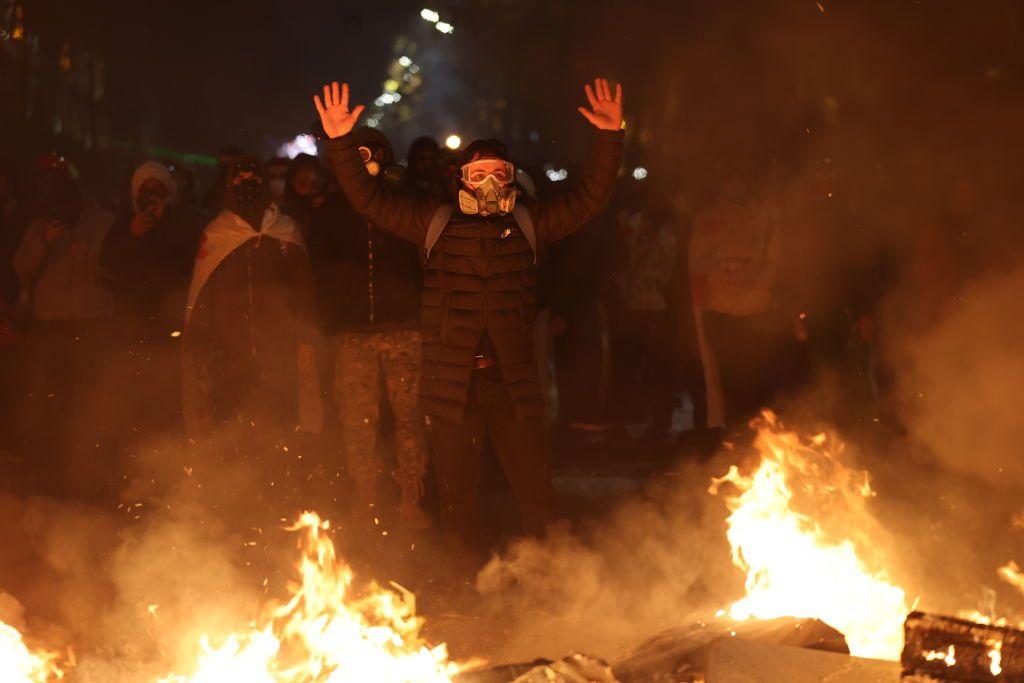
Georgian human rights defender Levan Ioseliani says the police have committed acts of “brutality” and abused their authority with impunity. Government supporters maintain that police have been subjected to intolerable attacks with stones and fireworks.
No obvious way out
This is a constitutional crisis with no obvious way out, unless one of the parties gives in. Will the government back down or will the protests die down under pressure from the police?
“There will be no negotiations,” says Prime Minister Irakli Kobakhidze, baselessly claiming that the protests are financed from abroad.
A couple says they will go out to demonstrate every night in December until Georgian Dream changes course and calls new elections to erase the vote from just over a month ago, marred by a series of infractions ranging from bribery to multiple voting.
Both sides accuse the other of lacking legitimacy.
On the one hand, there are the protesters, supported by the president of the Republic of Georgia, the pro-Western Salomé Zourabichvili, as well as four opposition groups. They maintain that Prime Minister Irakli Kobakhidze’s newly formed government is illegitimate and that the opposition will not enter parliament due to “falsified elections.”
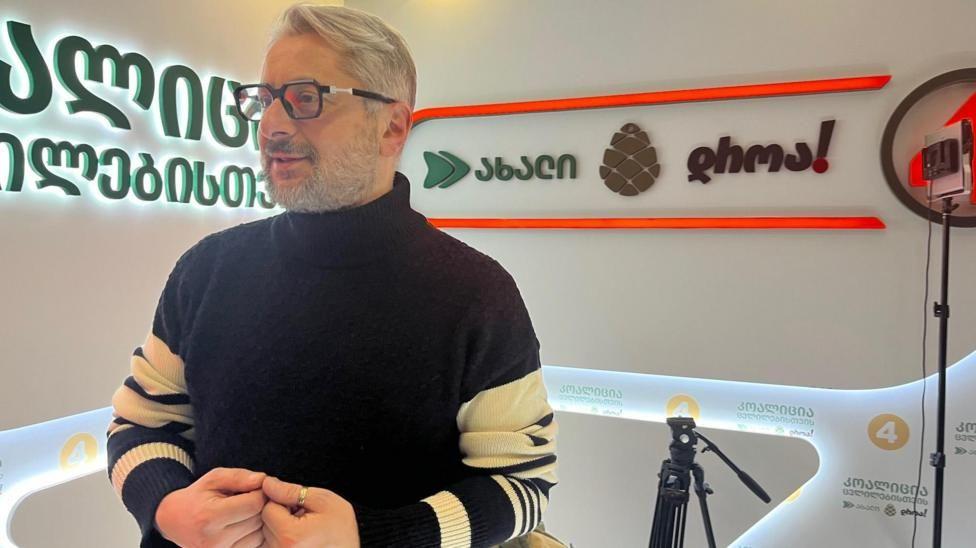
On the other hand, the ruling Georgian Dream party claims it won the vote fairly and insists that President Zourabichvili, who is merely ceremonial, has no legitimacy. Her term is about to expire, so the party is wondering why she is the one who plans to stay to maintain stability.
Meanwhile, Neighboring Russia watches closely, comparing events to Ukraine’s “Maidan”when its unpopular president was overthrown by pro-EU protesters in February 2014 and Russian troops and their proxies moved in to take over parts of the country.
“No to Russia”
“We are losing our country,” says Nika Gvaramia, opposition leader of the Coalition for Change alliance.
And Georgians face a tough choice between a European or pro-Russian Georgia.
As he speaks, protests are in full swing around the corner from his party headquarters, and his colleagues show security camera video taken inside his lobby a few days ago showing a protester being beaten by the police.
“We are shaking this government. The demonstrations will continue as long as necessary. We have no choice. It is a liberation struggle. “We know who we are fighting against, and it is Russia.”
The words “No to Russia” appeared painted in huge black graffiti in front of the Parliament building over the weekend and the same type of message can be found on walls throughout Tbilisi in varying degrees of forcefulness.
It is a message that, here, carries different meanings.
This year’s highly controversial Georgian Dream laws targeting civil society and LGBT groups have been branded “Russian-style” and undemocratic.
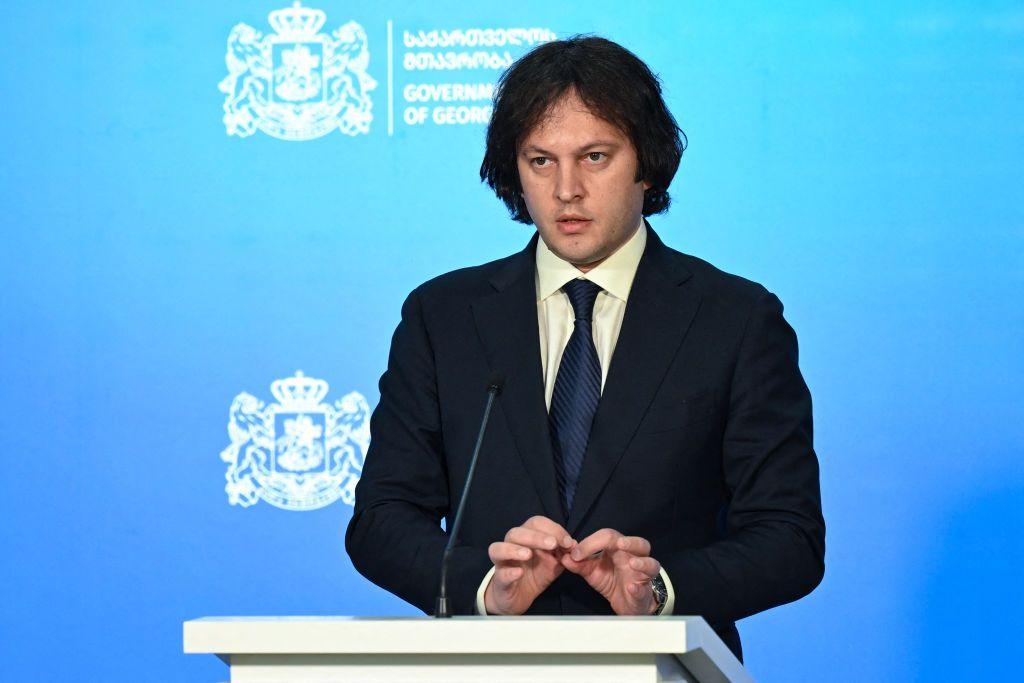
President Zourabichvili has described Georgian Dream’s electoral victory as a Russian special operation. And after that, there was a scandal when it emerged that a Russian named Alexander Malkevich, who had created a propaganda network in occupied eastern Ukraine, had been accredited to cover the vote.
But None of this proves Russian interference.even though the party’s billionaire booster, Bidzina Ivanishvili, made his money in banking and steel in Russia, and even though critics believe he must still have contacts there.
A senior Georgian Dream party official told the BBC in October that Georgia had said no to Moscow a long time ago and that the opposition was using the “Russia card” to attack his party.
“Knowing a little about Georgia’s history, no government would be stupid enough to start thinking about that.”said Maka Bochorishvili. Russia fought a war with Georgia just 16 years ago.
Bochorishvili, part of the Georgian Dream party, is now Georgia’s foreign minister, the new face of that country’s diplomacy.
Against a new “Maidan”
The decisive moment for Georgia and its relationship with the West came last Thursday, November 28, when Prime Minister Kobakhidze declared that the government had “decided not to include the issue of opening negotiations with the European Union” on the agenda for the next few years. four years.
Within hours, Russian President Vladimir Putin seized on his comments.
“I admire their courage and character, which they showed in defending their point of view,” he said, stressing that Russia has no direct relationship with Tbilisi.
Kobakhidze has even used the same kind of language as the Kremlin, accusing the opposition of planning a Ukrainian “Maidan”-style revolution.
However, his argument was that the Georgian police would make sure that did not happen.
Thomas de Waal, Caucasus specialist at Carnegie Europe, believes it is a mistake to see any kind of close friendship with Russia.
“It is a commercial relationship, there is no diplomatic relationship. There are things going on behind the scenes, but they are more afraid of Russia than they want to join it.”
Whatever the extent of the contacts, Moscow surely prefers in power the Georgian Dream party, which in a short time has destroyed Georgia’s ties with the European Union and the United States.
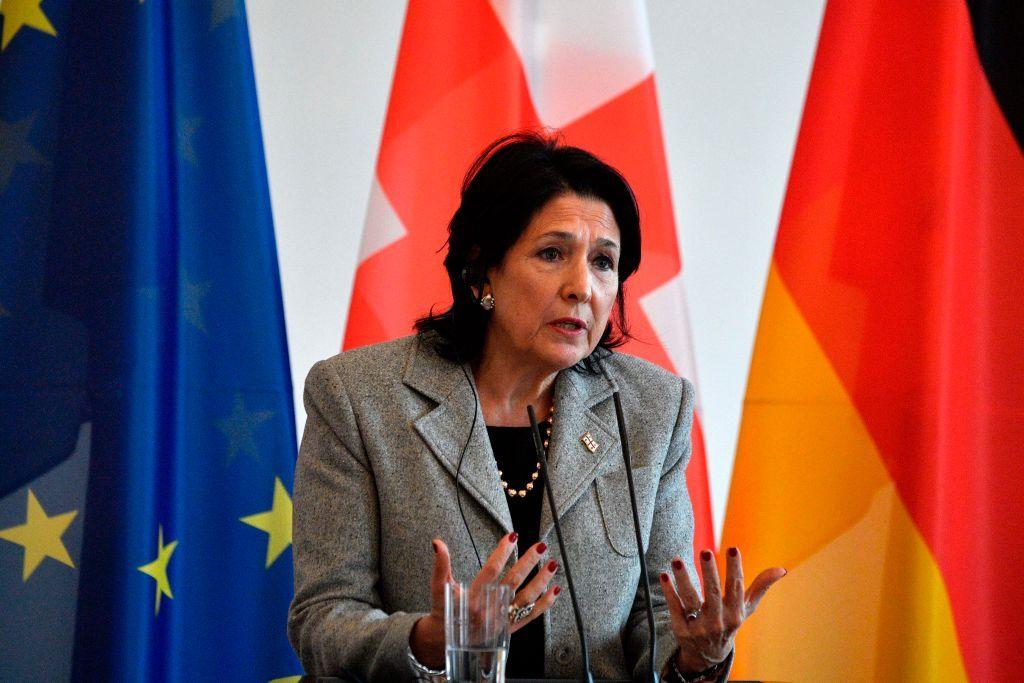
The nightly protests still show no signs of abating, even as temperatures drop near freezing and there is still no sign of a resolution.
Georgia has seen protests before, but not like thesesays Lasha Dzebisashvili. Public officials from all walks of life have signed letters and petitions, and several ambassadors have resigned, including Georgia’s ambassador to the United States, a clear blow to the ruling party.
The long stretch of Rustaveli Avenue is where this story will unfold in front of Parliament in Tbilisi, but protests are also being felt in other cities and towns, including Batumi and Poti on the Black Sea, Zugdidi in the northwest and Kutaisi.
On Sunday night, a large crowd of protesters gathered in front of the public broadcaster, demanding that President Zourabichvili be given air time, instead of the usual pro-government space.
This did not happen and little by little the protesters marched towards the center of the capital, stopping traffic and chanting “Georgia, Georgia.”
Nika Gvaramia and her fellow opposition leaders believe that the clear way out is the holding of free and fair elections, not under the existing electoral commission but under the auspices of the European Union and the United States. “If Georgian Dream is sure it has won the election, let’s have a new one.”
This seems highly unlikely, as it would require an implicit admission that the original vote was unfair.
Levan Gigineishvili, university professor and supporter of the Georgian Dream, believes that we just have to wait for a new president in the United States: “A great way out would be [Donald] Trump comes to power and then everything will change.”.
But there is a long way to go until January 20 and this small Caucasus state will not be high on its agenda.
In turn, Georgia’s business sector, for example, will not be happy with prolonged stagnation or the government lastingly damaging its ties with the West.

Subscribe here to our new newsletter to receive a selection of our best content of the week every Friday.
And remember that you can receive notifications in our app. Download the latest version and activate them.







